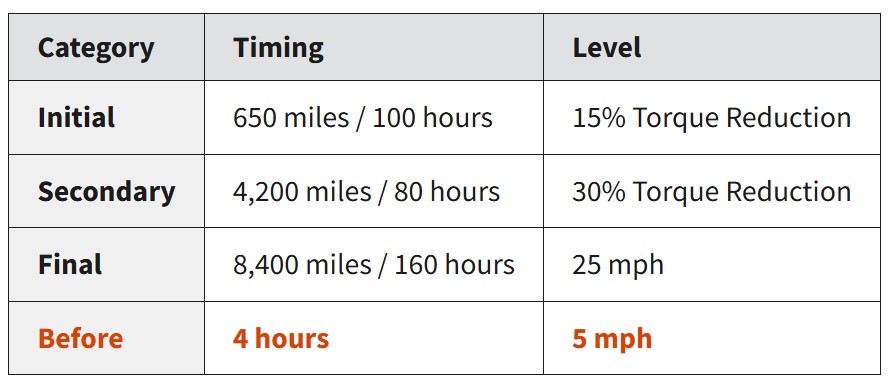EPA Update: DEF Shutdown Problem Finally Gets a Fix

So here’s the deal. If you’ve ever been out on the road, hauling a load, and suddenly your truck drops to 5 miles per hour because of a DEF fault, you know exactly how brutal that moment is.
On August 13, that started to change…
EPA Administrator Lee Zeldin stood up at the Iowa State Fair and made an announcement that’s going to hit home for a lot of truckers, farmers, and equipment operators. Alongside SBA Administrator Kelly Loeffler, he confirmed that the EPA is officially greenlighting a fix for the DEF system shutdown problem.

Zeldin said it loud and clear:
“We have heard loud and clear from small businesses across the United States that the current DEF system is unacceptable.”
And for the first time, the EPA is calling on manufacturers to update their software so trucks don’t get derated to crawling speed without warning.
This is real. It’s official. And it’s long overdue.
What’s Changing
The EPA is now urging engine and equipment manufacturers to revise the software in existing diesel vehicles. The goal is to prevent sudden shutdowns and give operators more time to respond to DEF faults.
Here’s how the new system will work:
- Instead of dropping to 5 mph within hours of a fault, trucks will first display a warning light.
- If the issue isn’t resolved, the system will gradually reduce torque over a longer period, days or even weeks, depending on the severity.
- This phased approach gives drivers time to reach a shop, finish a delivery, or get to safety without calling a tow truck.
You May Also Like: t or Fiction? The Truth About Canada’s Driving Laws in July 2025

And it’s not just for new trucks. The EPA is encouraging manufacturers to apply these updates to existing vehicles. No new approvals are required, which means fleets can now start requesting software revisions.
Looking Ahead to 2027
Starting with model year 2027, all new diesel engines will be required to include this updated DEF logic by default. That marks a major shift in how emissions systems are designed and regulated.
It also means that fleets planning to buy new equipment in the next two years should keep this change in mind. Trucks built before 2027 may need software updates, while newer models will come with the fix built in.
This isn’t just a technical tweak. It’s a response to years of complaints from truckers, farmers, and small business owners who’ve been forced to deal with DEF-related shutdowns that make no sense in the real world.

SBA Administrator Kelly Loeffler put it plainly:
“Small businesses have been losing productivity and revenue because of unnecessary DEF shutdowns. This guidance gives them a path forward.”
The SBA estimates that the fix could save family farms over 700 million dollars annually. For trucking fleets, the savings could be even higher when you factor in tow bills, missed loads, and emergency repairs.
What You Should Do Now
If you’re running a fleet, managing a truck shop, or driving a truck that’s been hit by DEF derates, now’s the time to act:
1. Contact your OEM or dealer and ask about DEF software updates.
2. Review your maintenance protocols to include the new phased derate logic.
3. Educate your drivers and technicians on what to expect from the updated system.
4. Plan future equipment purchases with the 2027 compliance deadline in mind.
This isn’t just another policy update. It feels like someone at the top finally listened to what truckers have been saying for years. When a DEF fault hits and your truck slows to a crawl, it’s not just a technical issue. It’s a real problem that costs time, money, and safety.
Now there’s a fix. And for every driver who’s been stranded, every fleet that’s paid for a tow they didn’t need, and every small business that lost a day’s work over a system glitch, this change is long overdue.












